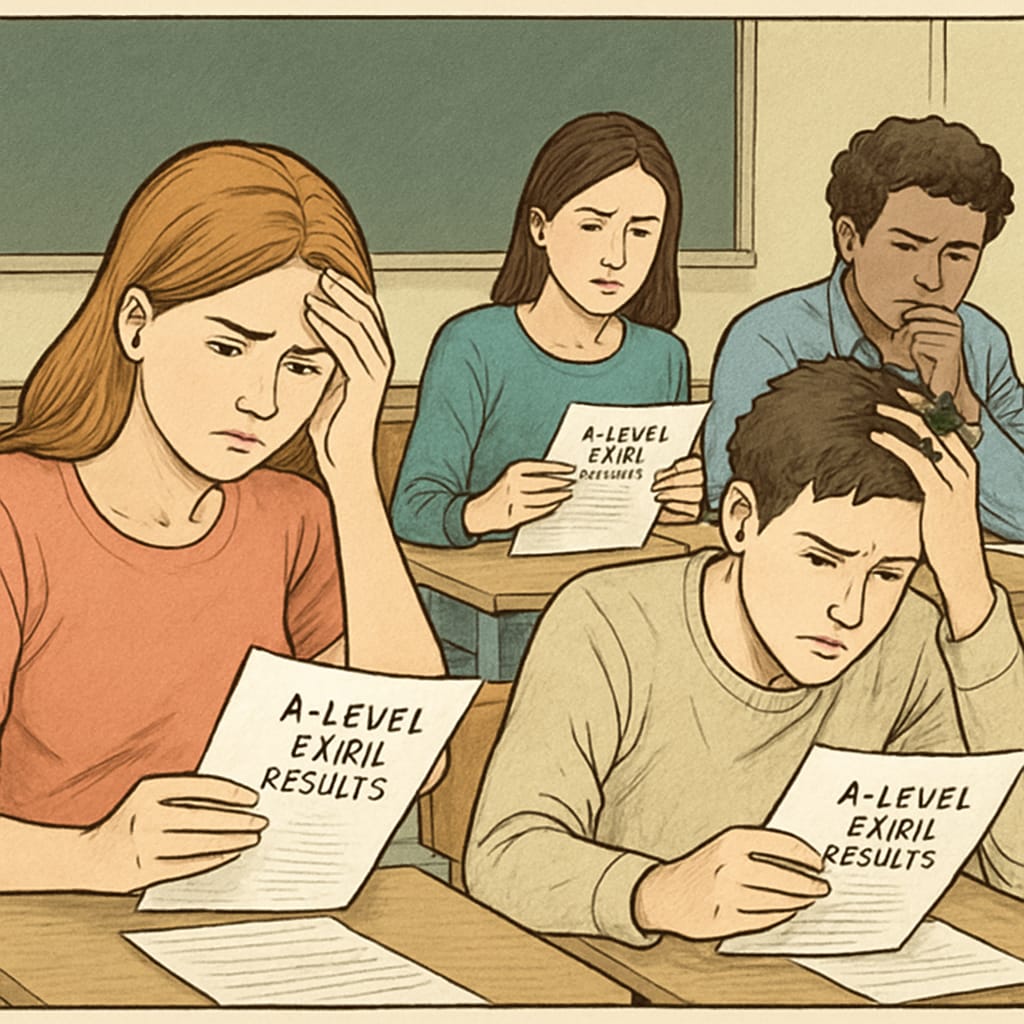When A-Level results fall below expectations, students often find themselves at a crossroads, struggling to determine the best path forward for their academic and professional future. Whether it’s retaking exams, attending a lower-ranked university, or pursuing an international foundation program, the decision can feel overwhelming. Each option comes with its own benefits and challenges, and understanding these can help students make a more informed choice.

Retaking A-Level Exams: A Second Chance
For students whose A-Level results are significantly lower than expected, retaking exams may seem like the most straightforward option. By revisiting the subjects and dedicating extra time to preparation, students have the opportunity to improve their grades and potentially secure admission to their desired university.
- Pros: Retaking exams allows students to aim for higher results and access competitive universities. It also demonstrates resilience and a commitment to self-improvement.
- Cons: Re-sitting exams can be time-consuming and emotionally draining. Additionally, there may be financial costs involved for exam fees and tutoring support.
While retaking exams can be beneficial, it’s essential for students to assess whether they have the motivation and resources to improve their performance substantially. For additional guidance, institutions like the Britannica Education Resource provide detailed insights into exam preparation strategies.
Choosing a Lower-Ranked University
Another option is enrolling in a university that may not rank as highly in league tables but still offers quality education. This choice is particularly suitable for students who prefer to move forward without delaying their academic journey.
- Pros: This path allows students to start university immediately, developing skills and gaining access to career opportunities sooner. Many lower-ranked institutions also offer strong support systems for personal and academic growth.
- Cons: Students may face limited access to prestigious programs or networking opportunities, which could impact long-term career goals.
It’s important to research universities thoroughly to ensure the courses align with career aspirations. Resources like Higher Education on Wikipedia can help students explore the diverse options available globally.

Pursuing an International Foundation Program
International foundation programs, also known as a “foundation year” or “pre-university course,” are tailored to students who need additional academic preparation before entering university. These programs are offered by institutions abroad and focus on bridging the gap between current qualifications and university entry requirements.
- Pros: Foundation programs provide comprehensive academic training and language support, especially for international students. They also introduce students to new cultural experiences and global perspectives.
- Cons: These programs can be costly, and relocating to another country may require significant adjustment. Additionally, the time spent in a foundation year may delay university entry.
For students considering this option, a foundation year can provide a strong academic base and broaden career opportunities globally. Understanding the requirements and benefits of such programs is crucial for making an informed decision.
Making the Right Choice
Ultimately, the choice between retaking exams, attending a lower-ranked university, or pursuing a foundation program depends on individual circumstances, goals, and resources. Students should reflect on their priorities, seek advice from educators, and weigh the long-term implications of their decision.
Disappointing A-Level results are not the end of the road; they are an opportunity to reassess and adapt. By carefully considering the available options, students can find a pathway that suits their ambitions and abilities, setting the stage for future success.
Readability guidance: This article uses concise paragraphs and lists to summarize key points, ensuring clarity and accessibility for readers navigating complex decisions.


